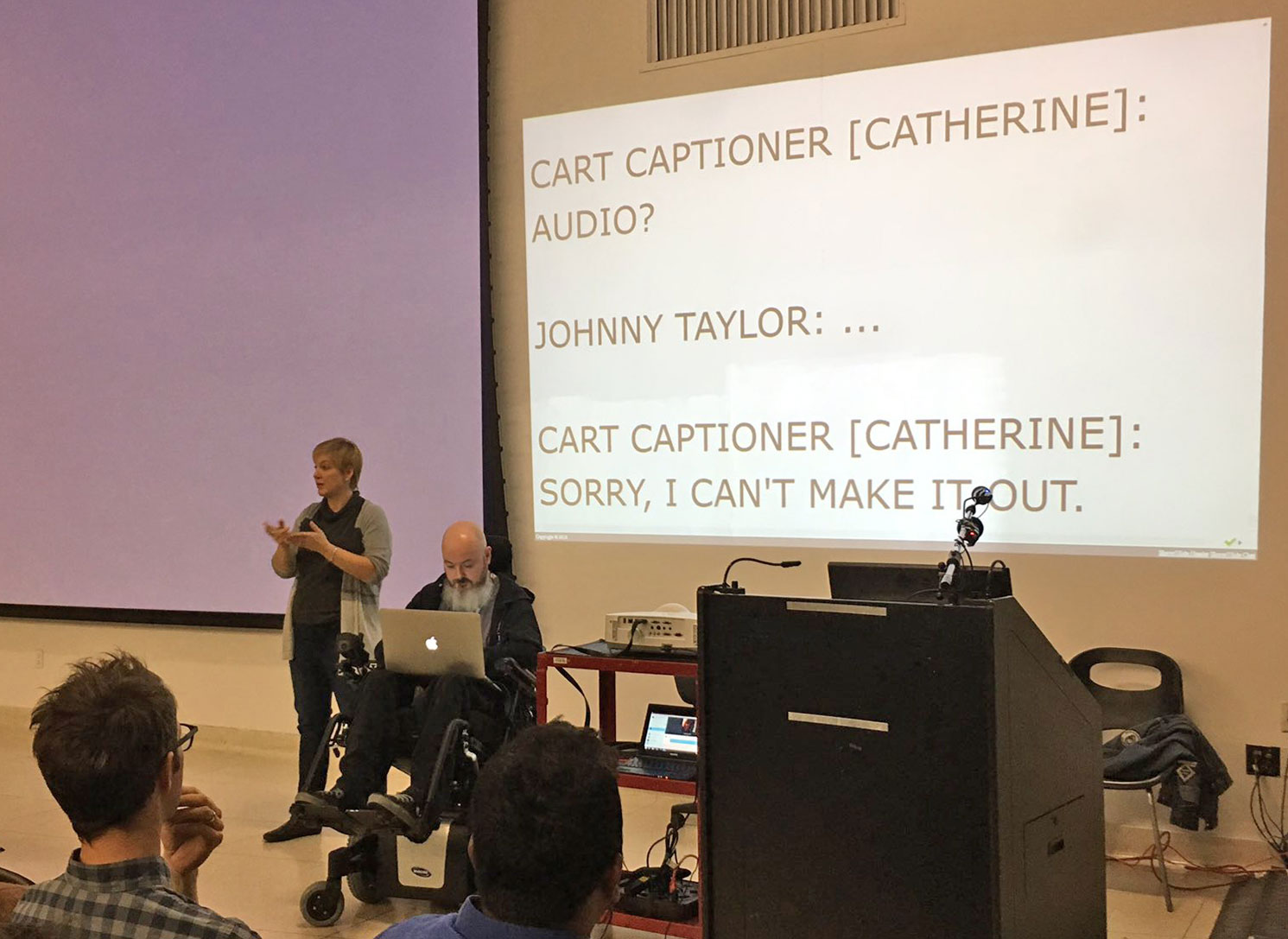I was asked for my thoughts surrounding the implications of “sharing” services, like that of Uber, on people with disabilities at a workshop held at the Inclusive Design Research Centre (IDRC) today. And since I was unable to attend in person, I was kindly given the opportunity to have my written words represent my interests instead. What follows are those words…
In all honesty, my initial approach toward these thoughts consisted of little more than what I’ve heard/ read about Uber from various sources, namely from the news media. And I’ll admit, that was unfair. But also consider one “source,” a Blind colleague, who was denied service because she was accompanied by a service animal, and charged a cancellation fee on top of everything, was what I drew my impressions from most!
And this wasn’t an isolated incident, for her I mean. It’s happened to her before at least one time previous (turns out it has happened fourteen or fifteen other times). And what happened after – I have no idea what amends, if any, were offered – is of little consequence; it happened. What I’m driving at here is Uber has a public perception problem as a result. However, that’s a separate issue – one potentially solved with training.
But what concerns me more about Uber’s intention to provide its customers an accessible service is what this effort will result in when it comes to Uber’s reliability. Read “Uber must earn trust from all their customers” in its entirety
